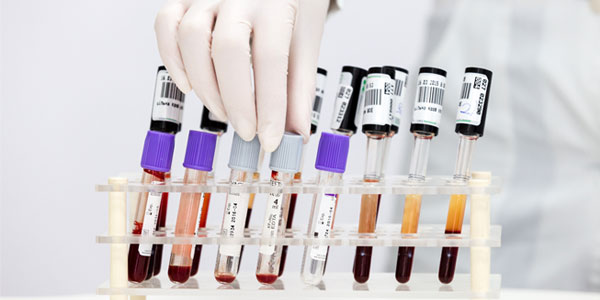Symptoms caused by hormonal issues—such as fatigue, weakness and more—can look like those of many other common conditions, so correctly diagnosing an endocrine disorder can take a bit of detective work.
Once you’ve received a preliminary diagnosis from your primary care doctor, endocrinologists at Sutter Roseville can use a variety of lab tests to measure the levels of various hormones in your body. These tests may reveal which endocrine system glands are not working correctly.
Blood Tests

- Tests to detect diabetes and prediabetes include the blood glucose test and the glycosylated hemoglobin test (A1c). If you’re pregnant, you may receive a glucose tolerance test to screen for gestational diabetes.
- Several tests, primarily a thyroid stimulating hormone (TSH) assessment, can see how well your thyroid is working.
- Other tests can scan for parathyroid conditions.
- Blood tests for luteinizing hormone (LH), follicle stimulating hormone and estradiol can help to detect female hormonal issues.
- Tests for testosterone can pinpoint male hormonal issues.
- Other blood tests detect levels of hormones, such as cortisol, androstenedione, prolactin and various forms of estrogen, that affect different systems.
Imaging Exams
Your endocrinologist may request imaging exams to look at your endocrine system function and its possible effects on other structures.
- Thyroid ultrasound imaging shows the size and shape of your thyroid and reveals any growths.
- A thyroid scan shows the size, shape, position and function of the thyroid gland.
- A radioactive iodine uptake test assesses thyroid function by measuring how much iodine your thyroid gland uses and where it goes in the gland.
- Several hormones can affect your bone density and put you at risk for osteoporosis. A bone density scan, a simple X-ray, evaluates your bone health.
- A pituitary gland MRI can reveal abnormalities of that structure.
- A parathyroid scan checks the glands that lie behind or next to the thyroid.
- Adrenal CT scan or MRI determines if there are signs of damage (such as a tumor) that is causing adrenal failure.
- An orbit CT scan checks the area around the eyes for evidence of Graves’ disease, a thyroid disorder.
If a scan shows an abnormality, your doctor may recommend an ultrasound-guided biopsy to remove and evaluate a tissue sample.












